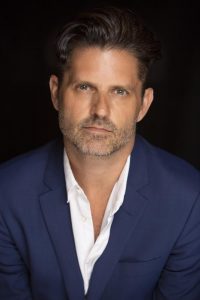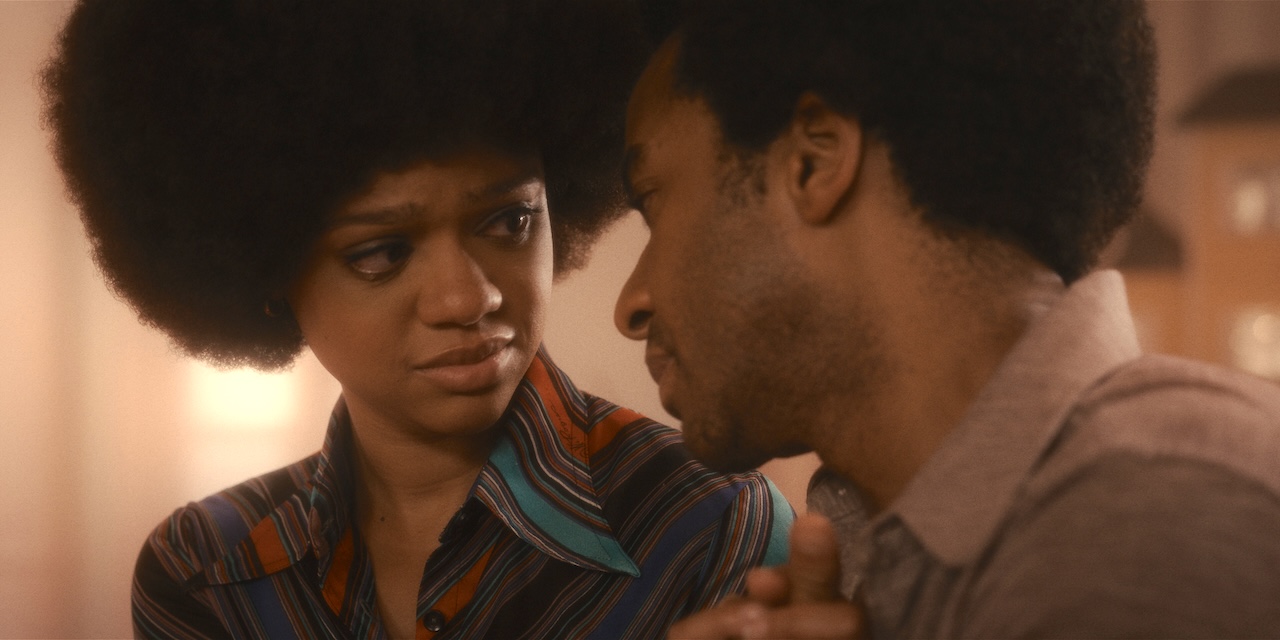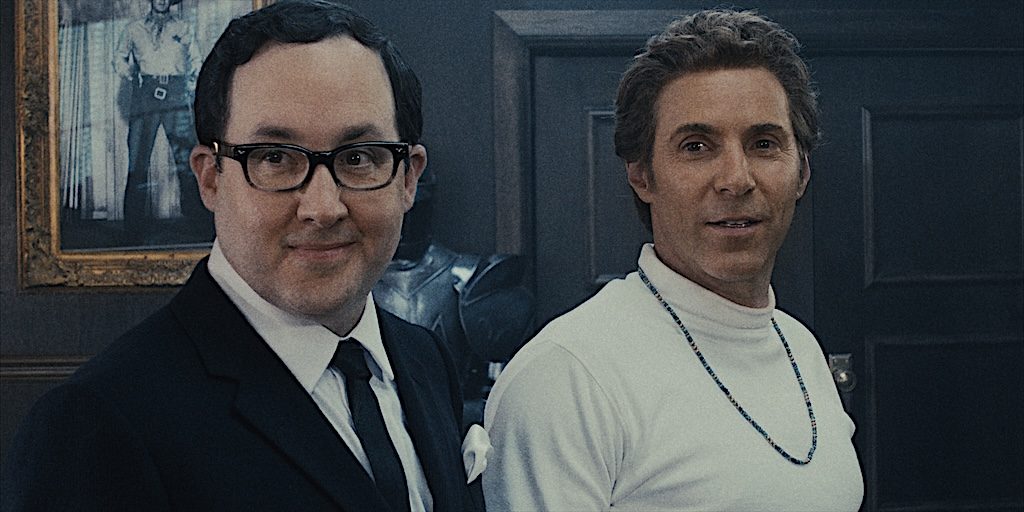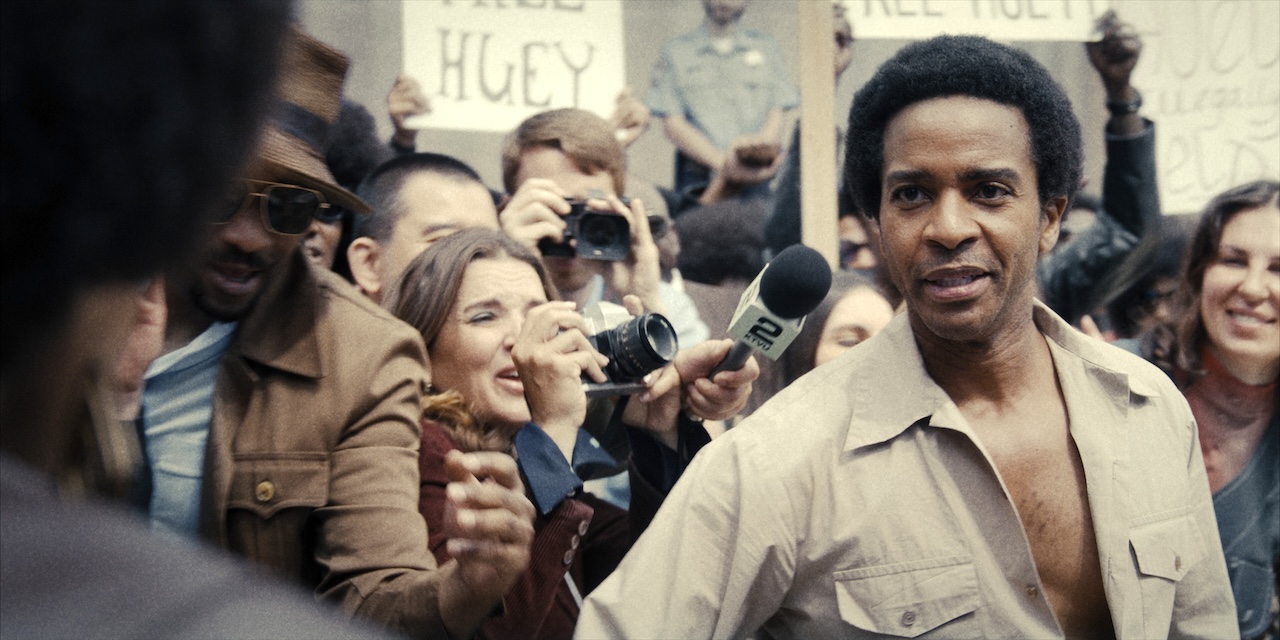“I always wanted to tell stories about black people,” says screenwriter Janine Sherman Barrois, who has credits on Claws and ER. “I didn’t see enough of [those stories] on the air, growing up. I didn’t always see the stories my parents told – that was my drive.”
“Writing is something you have to do,” she continues. “You wake up and you can’t not do it. If you could do anything else, you would do it, because writing is so painful – painful and joyous. I just wanted to tell stories that centralized black people and young women. If I could tell my younger self anything, it would be, ‘Keep writing.’ Eventually you will find the people who want to champion the same stories you do. A path will open.”
“For me, it came at a time when I was at a personal and professional bottom,” says Jim Hecht. “I had worked on some animation – [shows like The Fairly Oddparents and movies like Ice Age: The Meltdown]. I took the best, high-paying job I could get but I was writing things I wasn’t passionate about. I was miserable.”

Jim Hecht. Photo by Scott Nathan
Hecht took a meditation practice and rethought his writing process. In a nutshell, he was told he could no longer do things he liked, but only things he loved. “I think it was what Jerry Maguire described as a ‘pride swallowing siege,’ but if you love it, you can fight through those terrible moments.”
He continues, “The second thing was something Danny Strong (Dopesick, Empire) had told me, which was to stop trying to write the show you think other people want to watch and write the show you want to watch.”
The very next day, Hecht discovered the book he would later adapt into Winning Time: The Rise of the Lakers Dynasty with Max Borenstein. “I grew up a Laker fan. That was the thing I was born to do. Then, I was asked what story I had always wanted to tell and [that became The Big Cigar].”
Obsessed with Huey P. Newton
“It’s been a long process,” says Jim Hecht, who first discovered the story of Huey P. Newton in college, in the mid 1990s. “I was a political science major and I got very involved in participatory democracy and civil disobedience.”
This was one of the stepping stones that led Hecht into filmmaking. “When I decided to get into film, it was because I thought that was a better way to change the world — more effective than law or politics.”
Huey’s story had all of the dynamics to make a compelling film (or series) adaptation. “Huey’s escape to Cuba had an intersection of one of my favorite political thinkers, his means and methods, and 70s Hollywood.”
“I thought it was the greatest story I had ever heard. It was actually my thesis project at USC [University Of Southern California].” Hecht says his perspective has changed over the last two decades but the story has always compelled him.
“What enticed me about this story is that it was at a time in his life to show a revolutionary at a crossroad, and do it at a way that was unique to capture the subtle human experiences of what he was going through.”
Crafting a Revolution to ‘Police The Police’
For Co-Creator Janine Sherman Barrois, she was also drawn to the story. “As a revolutionary, Huey fought to change stuff. He saw black people getting killed across the country at the hands of the police. He saw the disparity in our community and he wanted to make a difference.”

Janine Sherman Barrois. Photo by Gloria Mesa
Huey P. Newton escaped to Cuba to avoid prosecution for murder with the help of Bert Schneider, the Hollywood producer behind Easy Rider, as well as a few other celebrity radicals. The series stars André Holland (Moonlight, Selma).
Sherman Barrois continues, “For so long, people have thought of the Black Panthers as a group that used the Second Amendment to police the police. They know that picture of Huey sitting in the chair with the gun and they’ve been pushed this [narrative] of violence, but it was Huey who decided to use the Constitution and our rights to police the police.”
The writers say the real-life Huey was vilified by the media rather than upheld. “Consequently, we went through school and never learned that the reason Cointelpro and J. Edgar Hoover and the FBI were after the Panthers because of the social programs.”
Opportunities as Obligations
“As a writer, to have an opportunity, it’s so hard to get these stories done. They take forever. No one wants to do them. No one wants to cover them. They feel like they’re history pieces,” adds Sherman Barrois, “but it’s so important that we do them.”
She felt a duty this project. “I thought to myself, would I hate myself if I didn’t work on this because there actually is a chance that if we didn’t fight to get this made — we know where we are in this political climate — would these stories get told?”
Hecht has carried the torch for twenty years and Sherman Barrois has been involved for six years. “It was worth every push, every argument, every fight, every time we thought it wasn’t going to happen, just so we can get people in their seats to watch it. The caper is the entertainment, but if they can stay for the Panthers and understand what these kids did and what Huey Newton tried to do, that would be the best gift of all of this.”

Gwen Fontaine (Tiffany Boone) and Huey P. Newton) André Holland. Photo courtesy of Apple TV+
Hecht says he didn’t look to any other fictional works for inspiration, but focused on the real life story above all else. “Anytime you get out of that, for me anyway, I’m not at my best if I’m trying to be a copy of someone else’s work. There are things I watched that I thought worked.”
“Escape at Dannemora, for example, which was an escape caper, but so little of it was the caper itself. It was entertaining but told a deeper story about those two characters. And then, drawing off our experiences from Winning Time was a help.”
“Anytime you’re at the keyboard or in the room or whatever, it’s a surge for truth with the subject matter. Anything I do to skew concentration off of that is not helpful.”
Sherman Barrois adds, “I think The Big Short was an influence for us, and Goodfellas, the way they play with time and go back and forth to tell a compulsive narrative. Even Malcolm X. Spike Lee told the story, but he also added humor. I think that was important for us. It was fun and entertaining, but never belittled the cause.”
Finding Standalone Moments
In order to craft this story, the writers had to examine the standout moments in Newton’s life. “There’s certain things you had to hit to give the context of how he ended up where he did,” says Hecht. “We played with the idea of doing it as a movie but a series felt like the way to go.”
Certain landmarks included the birth of the Black Panthers, Newton’s friendship with Bobby Seale, the State Capital, the first time they hit the streets, and the officer that shot Huey followed by his time in solitary confinement.
“He gets shot, goes to prison, and spends three years in solitary confinement, which we now know is torture, but wasn’t considered that then. He also sustained PTSD, which wasn’t a term back then.” Newton beat the “soul-breaker” and came out of prison as an “instant celebrity.”
“So you’ve got someone with a lot going on emotionally and then you pile on top of that, FBI surveillance, harassment, them trying to kill him 24/7, waking him up in the middle of a night, Hollywood exposures and that’s how he arrives at the crossroads of our story.”
Sherman Barrois adds, “The other thing we wanted to do, which was important for all, especially after Don Cheadle got involved, was to always center Huey in this. We wanted to hit the programs, show that iconic moment when he got out of jail, but we wanted you to understand why he became an icon to people. He was in solitary, but people had been fighting to get him out.”
The writers also wanted it to be clear that the pursuit of Cointelpro was relentless. “It wasn’t just a bug. There were shootings in the hallway. They tried to smoke Huey out. They were living next door to him. So we wanted that pressure, but also the hope of helping the Panthers fight from Cuba.”
Writing Challenging Characters
Newton is a challenging character to say the least. The writers also didn’t want to make him out to be a perfect leader. “We wanted to show the addiction and how it started, and him fighting to get clean.”
Hecht notes that the initial gun control movement was started by the Republican Party because Black Panther members were carrying guns in the streets. “It wasn’t the guns that started the war, but the social programs. They were feeding school children, providing healthcare, and providing ambulances. They saw the threat to the power structure, and through the force of the federal government at them, to stop them.”

Steve Blauner (P. J. Byrne) and Bert Schneider (Alessandro Nivola) Photo courtesy of Apple TV+
Aside from the character study, the writers also had to figure out which parts were true (“the boat did hit the Jesus statue”) but also what parts to add. “We tried to highlight those things. The crazy things were true. There were bombings and Cointelpro tactics used towards the Black Panthers. We don’t know if there was necessarily a bombing at a clinic, but we know of other things that occurred, so we had to collapse some things so the scene had more than one function.”
“The biggest thing in this show was walking the line of caper and history. It was the thing that kept us up at night. It was the thing that stopped production. Don Cheadle and André Holland are beloved and they were conscious to make sure we never made fun of the Panther movement, to never equalize making movies with the movement. We had to stick to the seriousness.”
“Enough is Enough”
In addition to showcasing the historic elements, the series also highlights the continuation of social justice today. Sherman Barrois says, “Huey and the Black Panthers saw what was happening with police violence and they took to the streets, used the Second Amendment, and policed the police to stop the brutality.”
“You saw, even before 2020, Michael Brown and all of these black men lose their lives. Clearly, horrifically, all coming to a head with the murder of George Floyd that we all witnessed. It’s hard to talk about. I don’t know whether the Panthers at the time thought we would be facing this again. I think they thought their efforts back then would end it.”
The connection, according to the screenwriters, is people who say “enough is enough,” who are willing to “put their careers, their lives, their livelihoods, their bodies on the line to fight for change. I think you see and you saw another generation of young people in the streets saying, ‘Enough is enough.’”
“We have to tell these stories. They do not want our history told. They are banning books on race more than any other books. They are having kids sign permission slips to learn about race. They are trying to tell us that slavery benefited us. They are trying to rewrite this. It’s up to writers of all colors — we’ve got to tell the stories.”

